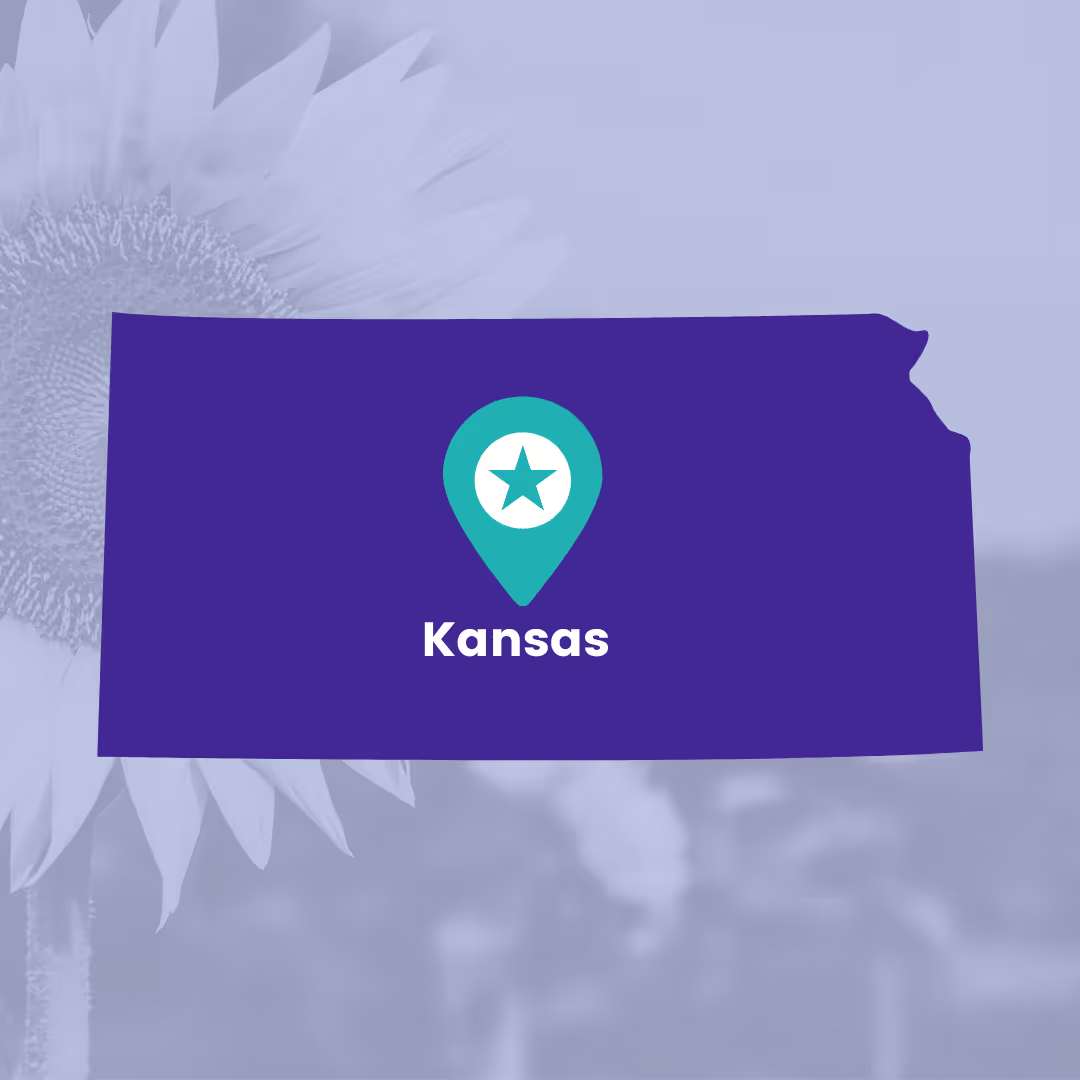
Licensing Cost: $125.00 for a new license
Renewal Cost: $100.00
Duration: 1 year
Expires: 6/30 every year
Continuing Education: 20 hours each year
Tempory License for Relief Work? No
Pay $125.00 to the Kansas Board of Veterinary Examiners.
Attach a photocopy of your diploma from an AVMA accredited veterinary school.
NAVLE: New vets applying for a license in Kansas will need to pass the NAVLE examination and have their results submitted directly to the Kansas Board. If you've previously passed the NAVLE, forward your scores using the AAVSB’s Vault Service.
Jurisprudence Exam: Applicants in Kansas will also need to complete an open-book Veterinary Jurisprudence Exam covering Kansas's veterinary practice act.
Submit a certificate of moral character completed by 2 people: a licensed veterinarian and a reputable business or other professional.
Veterinarians who are already licensed in another state, US territory, or Washington D.C. must submit a verification of licensure for any licenses currently or previously held. These can be emailed to vetboard@ks.gov.
AAVSB Vault Service: You can have the AAVSB transfer your NAVLE test results, verification of licensure for any other veterinary licenses, and letters of good standing for a fee of $99.
The Kansas Board of Veterinary Examiners does not specify how long it takes to process license applications. Ensure your application is not missing any documents to avoid delays.
Online: Complete the below application and upload to the Kansas Board of Veterinary Examiners Payment Portal along with all supporting documents.
Mail: Print the Kansas Veterinary License Application and mail with all supporting to:
P.O. Box 379
Wamego, KS 66547-0379
Pay $100.00 to the Kansas Board of Veterinary Examiners.
Renewal Date: 6/30 every year
Kansas veterinary licenses are valid for 1 year.
Kansas does not verify your CE annually, but it’s recommended you keep a record of your CE as the Kansas Board of Veterinary Medicine may randomly audit you.
To change your name, send the KBVE office a copy of the legal document that provides proof of your legal name change. Be sure to include your KS veterinary license number.
Unfortunately, Kansas does not offer temporary veterinary licenses that allow relief veterinarians to practice in-state for a limited duration.
Phone: (785) 456-8781
Email: vetboard@ks.gov
1003 Lincoln St.
P.O. Box 379
Wamego, Kansas 66547-0379
Please check your local requirements as state and national guidelines may have changed since last updated on Aug 22, 2024.
We're committed to supporting the veterinary community by creating even more incredible resources to help vets reach their professional goals.
We're constantly hosting free CE Events around the country and collaborating with local veterinary organizations to co-sponsor even more.